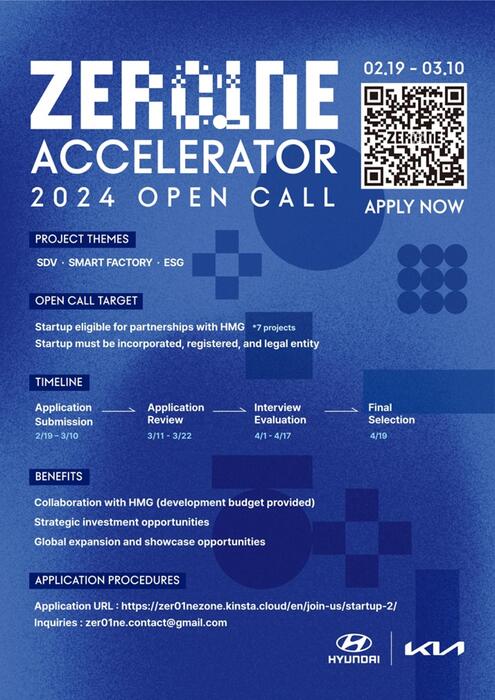The runrún began during the month of December 2021. Several analysts advanced that the investment figures in African emerging companies would be surprising and speculations spread.
With the beginning of the year, came the publication of different balance reports that ratified the suspicions with data.
According to figures from PartechPartners, which carries out one of the most respected studies, investment in emerging companies or
start-up
African women in 2021 was about to quadruple the amount of the previous year, specifically it multiplied by 3.7, reaching the figure of 5,243 million dollars, 4,900 million euros, which means that it has practically multiplied by ten in four years.
And the pace in 2022 is even faster.
The Africa: The big deal observatory has ensured that in the first seven weeks of the year, African emerging companies had already reached one billion dollars of investment, almost a quarter of all that of 2021.
This type of financing has increased throughout the world, but the proportion in which it has done so in Africa goes beyond that general dynamic.
According to Crunchbase data, “global venture investing last year totaled $643 billion, compared to $335 billion in 2020, marking a 92% growth.”
However, the rate of growth in Africa is significantly higher.
Different consultants offer slightly different figures, because they do not use the same methodology, but there is unanimity on the takeoff of 2021. If Partech points out that the 2020 investment has multiplied by 3.7;
Briter Bridges puts that figure at 3.5;
the Disrupt-Africa report reflects that it has tripled, and that of Africa: The Big Deal, that it has multiplied by 2.5.
Beyond the differences, Iyinoluwa Aboyeji, head of the Future Africa Fund, one of the funds that invests most intensively in the African continent, explains that in 2021 external and internal factors have coincided that explain the increase.
“In 2021, there was a lot of turmoil around technology investments in China, so probably a lot of global investment firms thought it was a good time to move some of their money to Africa.
In addition, it was one of the few territories that was not completely closed due to covid-19 ″, he points out.
But not everything has been coincidences for Aboyeji.
“The most important thing”, he assures, “is that the continent was prepared.
It has been a revolution that has been cooking for the last ten years because there have been many people who have been investing in ecosystems since 2010”.
This expert investor has been at the origin of two of the most acclaimed
start-ups
on the continent: Flutterwave –which offers payment solutions and other financial products aimed at commercial transactions– and Andela –a platform that connects companies in need of technological solutions with talent located in emerging countries–.
They are two of the first African unicorns (companies reaching a valuation of one billion dollars).
Aboyeji represents a new generation of investors in African ecosystems: the entrepreneurs who have made their companies successful and are now funding other promising initiatives.
In fact, one of the novelties observed in the Africa report: The Big Deal of 2021 has to do with the origin of the investors.
The largest number of funders comes from North America, that has not changed, the difference is barely noticeable.
290 investors from North America have registered, compared to 222 from Africa and 176 from Europe.
In addition, the most active investors are Africans, specifically 100 of them participated in more than one operation, compared to 69 of the North Americans.
Iyinoluwa Aboyeji argues that African investors have been the ones who really "initiated the current evolution".
“During the height of Covid-19, when everyone was shutting down equity platforms, these guys decided they were going to support African companies.
That decision has completely changed people's lives”, she says, and recalls that African investors have been the first to “believe in ecosystems and support them so that later others will join”.
Another novelty is the diversification of the sectors in which the
financed
start-ups operate.
It is true that the field of financial technologies has established itself as the most attractive and accounts for between 53% and 62% of investments in emerging companies on the continent.
But it is also true that the list of sectors expands and areas such as e-commerce and retail or logistics appear strongly.
And also others such as education or health technologies, those of agriculture or those known as clean technologies and the transport sector.
Start-ups are creating economic development by giving people an opportunity to build businesses, engage the population and make their lives better
“
Start-ups
are creating economic development,” says Iyinoluwa Aboyeji, “by giving people an opportunity to build businesses, engage people and make their lives better, whether it's improving payment methods for retailers, providing jobs for young people, improving the means of communication or offering financing platforms that allow companies to enter the global market.
All this contributes to the economic development of the continent”.
The head of the Future Africa Fund is clear about the role of these business initiatives: “They are beginning to change people's lives, increasing their income and helping them to live better.
Obviously the focus is how do we help people get ahead through the use of technology.”
Along the same lines, Samir Abdelkrim, a researcher specialized in African ecosystems of technological innovation, recalls previous experiences in this field, such as the appearance of the
mobile money in Kenya: “The poorest Kenyans, the base of the pyramid, were generating a currency of exchange with their mobile phone.
This is what is called organic innovation.
They were people who didn't have access to the banking system, they were the ones excluded from the system and they were hacking the technology to get around that exclusion.
The poorest population had created an alternative, their own bank, through their telephone”.
And he recalls that throughout this process "what is fundamental is the use given to technology."
“It is not technology that produces inclusive and social development,” warns Abdelkrim, “but the use of that technology.
The same mobile phone that in the United States or Europe is used to play games or watch Netflix, was being used to send money or receive agricultural information.
The latest development is the increase in the geographical scope of this sector.
On the one hand, the so-called “
big four
”, the continent's four largest markets, are consolidating and Nigeria consolidates leadership, with practically a third of all investment, followed by South Africa, Egypt and Kenya.
The data from Africa: The Big Deal indicate that these four countries monopolize 81% of the financing.
Samir Abdelkrim takes a look at these markets: “Historically, Kenya is one of the most innovative ecosystems.
It all started in Nairobi, so Kenya is important for the strength and dynamism of its community.
South Africa has the best infrastructure.
In Nigeria we find the big numbers, the demographics, the huge population of Lagos... Egypt offers an interesting combination of big numbers, a crossroads between Africa, the Mediterranean and the Middle East, great talent, good infrastructure and facilities for start a
start-up
”.
But this expert widens his view: "And then we find French-speaking Africa, with Senegal, the Ivory Coast, Mali, Morocco, Algeria or Tunisia, which represent ecosystems in full formation."
Reports agree that Senegal and Ghana knock on the door of the select group of innovative powerhouses and the list of countries where attractive
start-ups
emerge extends with countries like Tanzania, Algeria, Mauritius and Tunisia completing the top 10. And thus reaching 30 countries in which agreements of more than 100,000 dollars have been signed to promote these emerging companies and to strengthen these ecosystems.
The strategic alliance between Europe and Africa
Faced with the consolidation of African innovation, Samir Abdelkrim calls for Europe's collaboration, precisely to strengthen the position of both continents and generate a counterweight to the American GAFAM (acronym by which companies in the technology sector are known due to the contraction of Google , Amazon, Facebook, Apple and Microsoft) and the big Asian technology companies.
“African actors may be generating a certain dependency on these companies, but what they tell us is that, in reality, they need the GAFAM.
There should be an African benchmark for digital sovereignty that does not yet exist.
On the other hand, there should be much more collaboration for innovation between Africa and Europe.
Europe is also a hostage of the GAFAM, so you have two weak continents, which should work together because, in reality, they are victims of the same situation”, warns Abdelkrim.
“We must develop an alternative together.
And that, without losing sight of Huawei or the big Asian companies”, says the expert.
This globetrotter of the African innovation ecosystems points out a solution to guarantee the digital sovereignty of Africa and Europe: “We must think about how to create Euro-African centers of excellence in technological innovation, how we make a true scientific cooperation and how we share research.
It is time to recognize Europe's weakness in order to react;
and look for accomplices and allies.
And I think Europe's only chance is Africa and, at the same time, Africa's only chance is Europe."
You can follow PLANETA FUTURO on
,
and
, and subscribe
to our 'newsletter'
here
.














